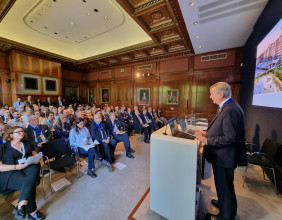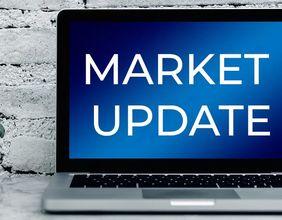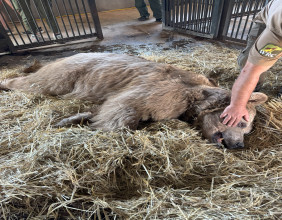UK to introduce Border Control Plans
On 10th February 2020, the de facto deputy Prime Minister of the United Kingdom, Michael Gove confirmed that there will be trade barriers imposed on the goods being imported in the United Kingdom from the other parts of the European Union, and these barriers will be implemented using stringent Border control and other measures that will be put in place soon.
In the first official affirmation that the administration will force trade barriers following the formal exit of the United Kingdom from the European Union, Mr Gove also cautioned that there would be checks and stringent policies in place on food-based products, as well as animal-based products such as leather, in addition to customs assertions and obligatory wellbeing and security authentications required for all imports.
The news regarding the planning of this move surfaced around 8th January 2020, much before the beginning of the Brexit Transition phase, when Mr Gove updated regarding the plans to introduce import controls on European Union goods at the border. He had mentioned that the United Kingdom, following the formal exit, will fall outside the purview of the single market, well outside the customs union, and hence the businesses of the country should be prepared for the customs methodology and administrative checks that would be in place by the end of the transition phase. The administration had also stated that all products exported from and imported into the United Kingdom would be treated equivalent in terms of trade barriers, with businesses both in the United Kingdom and the EU27 having to submit customs declarations and being liable for checks on all the borders.
This intention was much in line with the UK governmentâs demands of negotiating a free trade agreement (FTA) to administer its future trade as well as political relations with the EU27 nations, which is expected to be the countryâs largest partners, by the end of the year, when all agreements will be put in their places.
On 10th February, the Governmentâs Cabinet Office, on behalf of Mr Michael Gove, issued a press release for the purpose of the confirmation of this news. The government cited many reasons and factors for the introduction of these trade barriers, some of which are:
- to keep the borders of the country safe and secure so that the government knows whoâs coming in and how often, what they are bringing in, and why.
- to ensure that the government can treat all partners in uniformity as they begin to negotiate their own trading arrangements with other countries and unions across the globe.
- to collect the right customs, VAT and excise duties from traders and businesses, which can help the United Kingdom to grow.
- the EU has said it will enforce checks on the UK goods entering in the Eurozone; hence the government will likewise enforce their own rules for the goods entering the UK.
As an advisory to companies and businesses in the country, it was also mentioned that the business could be ready for any trade barriers on the borders by assuring they have an Economic Operator Registration and Identification (EORI) number, as well as by preparing for how they want to make a declaration. This can be done by various methods such as by using Customs agents. The authorities and the administration will ensure facilitations that have been made available to the traders from the rest of the world, will also be available to the companies and individuals trading between Great Britain and the European Union.
The release also highlighted Mr Goveâs statement that as a result to these barriers on borders, the UK will be in a robust position in terms of trade policies, not just to make sure that the economy of the country is on the right track following the exit from the European Union but also so that the UK is in a position to take benefits of the new trading relationships with the other countries outside of the bloc.
It has also been mentioned that this notification was only meant for Great Britain and European Union businesses and will now apply to the trade between Northern Ireland and Ireland or Northern Ireland and Great Britain.
Markets response to trade barriers news
On 11th February 2020, the FTSE 100 Index of the London Stock Exchange was reported to have been trading at 7504.43 points at the time of writing at 10:39 A.M GMT. This was an increase of 57.55 points, or 0.77 per cent, as opposed to the closing level on the previous trading session of 7446.88 points. At around 9:30 A.M GMT, the news started showing its impact when the FTSE 100 Index was reported to be at 7491.69 points, gaining 0.17 per cent or 12.74 points, since then at the time of writing. This was an indicator that the investors of the large-cap and blue-chip companies were pretty content with the governmentâs decision to put trade barriers in place, as a response to the EUâs decision to put trade barriers on goods being imported from the UK.
At the same time, the FTSE 250 Index of the London Stock Exchange was reported to be trading at 21,559.53 points, an increase of 66.21 points or 0.31 per cent as compared to the previous dayâs closing level of 21,493.32 points. This was also an increase of 0.03 per cent or 6.46 points since the 09:30 A.M, when the FTSE 250 Index was reported to be at 21553.07 points, displaying a very marginal gain of 0.03 per cent or 6.46 points. This can be termed as a perception that the investors of the mid- cap stocks in the UK looks not much affected by the said news.
Brexit and the Coronavirus
On 10th February 2020, as per a report by the Brexit Health Alliance (BHA), which is an umbrella organisation of the National Health Service (NHS) of the United Kingdom, preventing and curing global health outbreaks such as the coronavirus, stating it will become extremely tough if the United Kingdom does not have access to the EUâs early warning system against health crisis. The BHA believes that it is extremely important for the Healthcare regulatory bodies to fight against any such cross-border health crisis, but it will only be possible if the country has a good alternative to the EUâs Early Warning System.
The alliance has also requested the administration and the regulatory bodies to make sure that the cooperation with key European Union organisations and agencies, such as the European Centre for Disease Prevention and Control (ECDC) is continued on a high priority, and the UKâs access to services such as the above mentioned early warning and response system, in order to fight critical cross-border public health threats, such as the current outbreak of Coronavirus epidemic and other Zoonotic Diseases.
The BHA has also asked for assurances to be made that critical drugs and medical and biotech equipment will be allowed to move in and out of the United Kingdom and other Europe countries of the EU27 bloc, and that UK and EU citizens would get healthcare, especially while migrating or travelling in the member countries of the EU.





